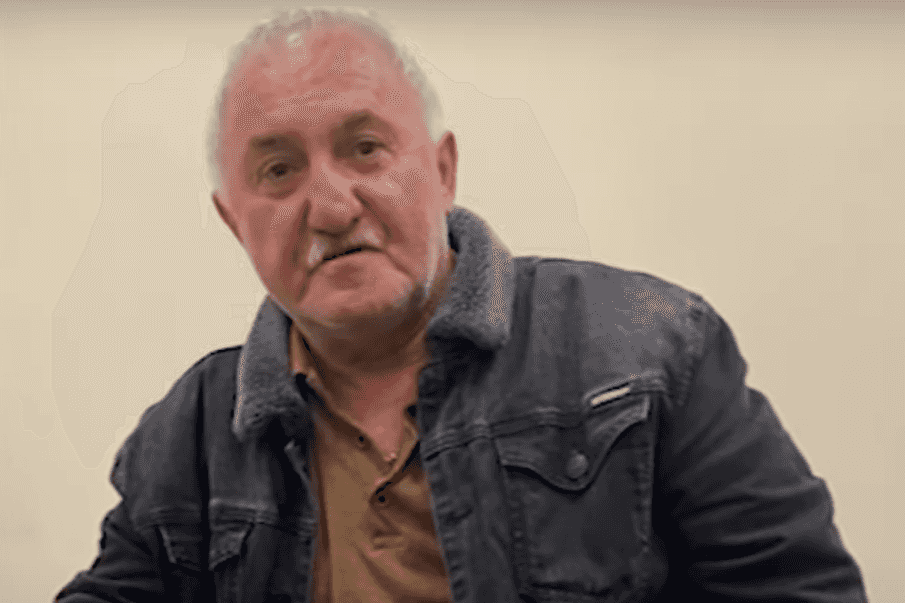
Abkhazia’s State Museum has closed its modern history wing after the Russian Embassy reportedly demanded the removal of a photo of Chechen rebel commander Shamil Basayev.
On Tuesday, the Russian Embassy in Abkhazia told RBK that they had submitted a complaint to Abkhazia about the photo, and that the museum intended to ‘rectify the current situation as soon as possible’.
The complaint comes at a low point of relations between Abkhazia and Russia, and follows Russia’s decision to cut funding to Abkhazia for failing to enact pro-Russian reforms.
[Read more: Russia cuts financial support to Abkhazia in ‘serious blow’ to relations]
While the museum has closed the wing which houses the photograph, an employee told OC Media that they did not intend to remove the photo so long as Basayev held the title of ‘Hero of Abkhazia’ — given to him by Abkhazia’s first president, Vladislav Ardzinba.
‘Shamil Basayev is a “Hero of Abkhazia”, he was not deprived of this award, either during his lifetime or posthumously. If the Court decides to deprive him of this title or there is an order from the Ministry of Defence, then we will remove the photo, but so far there is none of this, we just closed the room where the photo hangs’, an employee told OC Media.
Basayev was given the title for volunteering to fight on the Abkhaz side during the 1992–1993 War. During the war, he served as commander of the volunteer forces of the Confederation of Mountain Peoples of the Caucasus.
Later, Basayev fought against Russia in the First Chechen War; in 1996 he became General and Commander of the Chechen Armed Forces. Following the second Chechen War, he continued to fight as part of the insurgency, organising a number of terrorist attacks, most notably the Beslan School Siege in 2004, which killed 334 people, 186 of them children.
[Read more: ‘No-one was held accountable’: Beslan, 20 years later]
Basayev’s photograph has been a part of the museum since 2012, a museum employee told OC Media. That year, the museum was reopened after renovations carried out using Russian financial aid. An event to celebrate the museum’s reopening was attended by the then-Russian Ambassador to Abkhazia, Semyon Grigoriev.
The Russian Embassy’s complaint came after several North Caucasus Telegram channels shared posts about the photo, primarily focusing on Basayev’s terrorist activities. They called on the Russian Embassy to intervene and demand the photo be removed.
On 22 September, the Telegram channel Hard Blog published a post arguing that Basayev’s significance to Abkhazia was ‘no longer important’.
‘He has tarnished himself so much that none of his past merits can serve as an excuse for the Abkhaz side. When Heroes of the Soviet Union committed crimes, they were stripped of their titles and condemned without much thought about their past merits’, they wrote.
The post also criticised Abkhazia for ‘sucking into’ the Russian budget and questioned why the Russian Foreign Ministry did not perceive the photo as ‘a slap in the face’.
According to the Telegram channel Sovmin, Basayev’s photo was kept in the State Museum due to pressure from opposition MP Kan Kvarchia. This claim, however, has been denied by museum employees.
‘Basayev is part of our history’
In Abkhazia, there has been little outrage regarding Basayev. His figure has generally been associated only with the 1992–1993 War in Abkhazia.
Aslan Kobakhia, an Abkhazian veteran, alleged in a post on Facebook that it was those who were watching Abkhazia that ‘suddenly noticed’ the photograph of Basayev, even though it had been hanging in the museum for decades.
‘Our people will always highly value Basayev’s actions in Abkhazia, but let the Chechen and Russian peoples evaluate his further military path. We are not judged by God!!!’ he wrote.
‘And for those who are trying very hard to find someone in Abkhazia who is at least a little bit anti-Russian, my advice: There is a daily recruitment of volunteers for the Russian army, that’s where you need to go to really help Russia!!!’
A similar Facebook post was written by Abkhazian veteran Guram Inpshba, under which were comments supporting Basayev’s ‘eternal memory’ and ‘blessed memory’.
According to an Abkhazian activist who spoke with OC Media on the condition of anonymity, this incident was another way to sow discord between Abkhazia and Russia.
‘All these years, this photo has been hanging in that very place, and it hasn’t bothered anyone. And now, suddenly it’s necessary to show how ungrateful the Abkhazians are on all counts. And we don’t want to pass laws, and we honour terrorists. Yes, Basayev is part of our history, and the culture of cancellation is not for us. We don’t cancel heroes, even if they did something bad somewhere. Basayev did only good for us’, they told OC Media.
It is unclear when the exhibition will reopen.
For ease of reading, we choose not to use qualifiers such as ‘de facto’, ‘unrecognised’, or ‘partially recognised’ when discussing institutions or political positions within Abkhazia, Nagorno-Karabakh, and South Ossetia. This does not imply a position on their status.









